The Kraken have won just 14 times in 44 games. What's gone so wrong?
Jordan Eberle sat in front of a computer screen this past Friday, fielding questions from familiar voices while sporting a Seattle Kraken baseball cap.
Over Zoom, New York-area reporters asked the former New York Islander about the Kraken's inaugural season and life on the West Coast. In one response, Eberle made an apt comparison between his old and current teams.
"We didn't really have that juggernaut offensive talent, and we weren't going to outscore teams," Eberle said of those well-structured Islanders squads.
"And we're no different here," he said of the 14-25-4 Kraken.
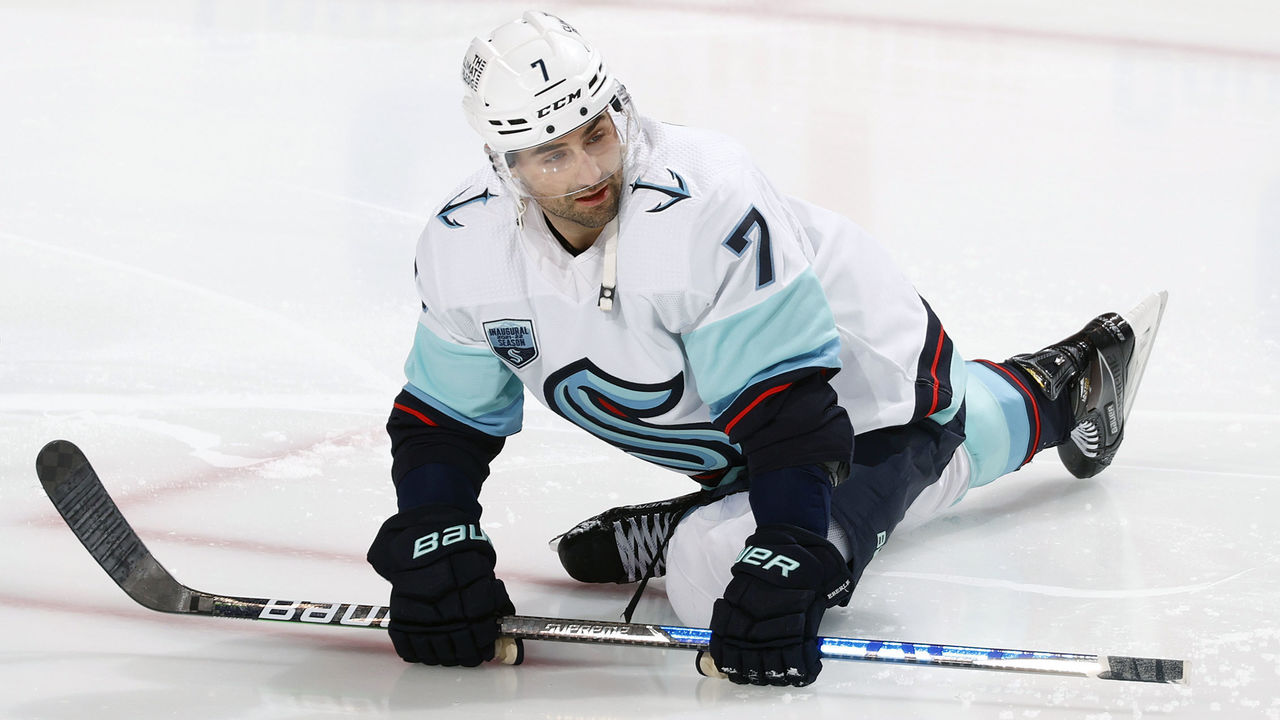
For various reasons - including a dearth of goal scoring - Seattle sits 30th in the NHL standings, besting only the woeful Arizona Coyotes and Montreal Canadiens in points percentage. If the Vegas Golden Knights were a tidal wave that engulfed the sport, the Kraken have been a cold shower and a startling reminder of how elusive on-ice success can be for a brand-new franchise.
With help from Kraken forward Yanni Gourde, Root Sports TV analyst JT Brown, and HockeyViz.com's Micah Blake McCurdy, let's take a look at what's gone wrong so far and what to keep an eye on moving forward.
The glaring issue
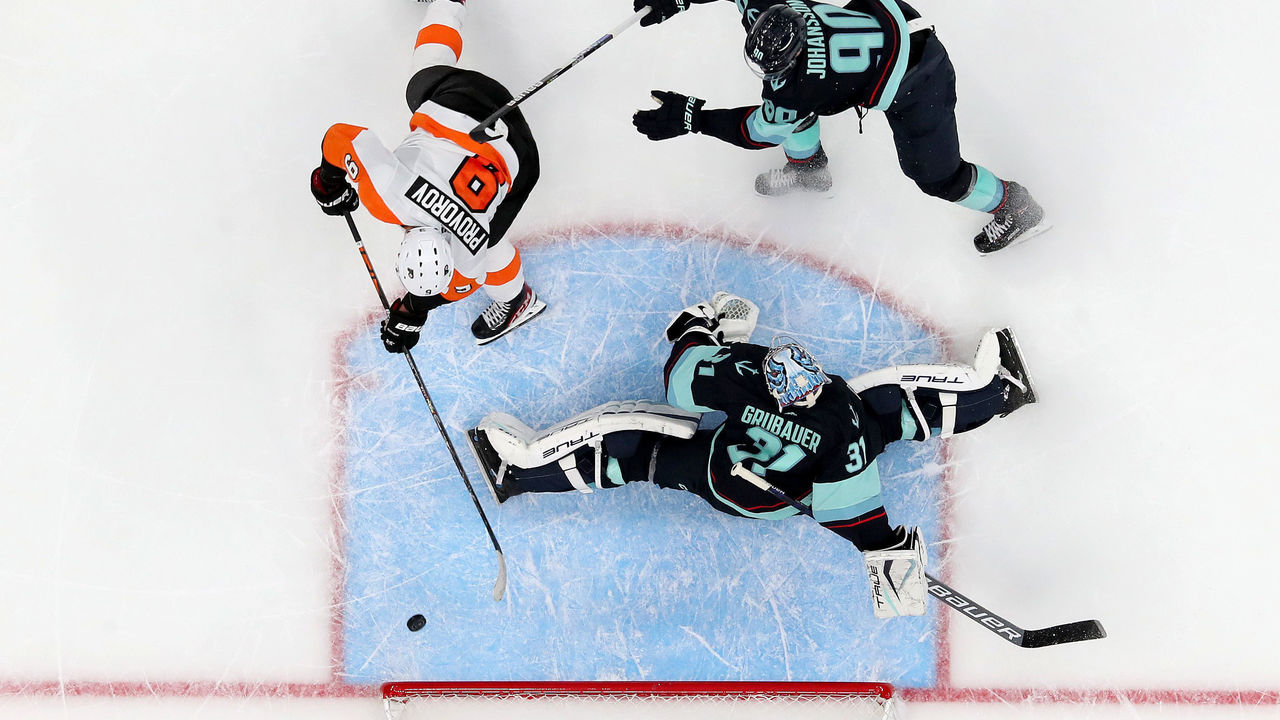
After the dust settled on an offseason of roster building through the expansion draft and free agency, the Kraken opened their first-ever training camp with a lineup that, on paper, looked primed to challenge for a playoff spot in Year 1.
The team featured a promising goaltending tandem of Philipp Grubauer and Chris Driedger, a well-rounded defense corps anchored by 2019 Norris Trophy winner Mark Giordano, and a solid yet unremarkable collection of forwards. They had the hockey world believing the Kraken would be imbalanced, yes, but also competitive.
"I pegged them as being very weak offensively and very strong defensively," McCurdy said. The season preview he wrote for his website predicted the Kraken would finish third in the Pacific Division, behind Vegas and the Calgary Flames.
And here we are, just past the midway point of the season, and Seattle is already being counted out by predictive models at MoneyPuck.com, The Athletic, and McCurdy's HockeyViz.com. The Kraken - whose latest loss came Sunday against the New York Rangers - have dug a hole so deep that they've been given a roughly 0% chance of making the playoffs by all three models.
The primary source of disappointment through 44 games? Goaltending.
The Kraken's team save percentage is .876 - a shockingly poor rate given the Grubauer-Driedger duo had been widely celebrated as a strength before the season, even if it was unlikely Grubauer would replicate his Vezina-caliber performance from 2020-21. (For context, the 1999-00 Tampa Bay Lightning and '99-00 Atlanta Thrashers at .876 and .877, respectively, count as the last teams to finish an NHL season with a save percentage below .880.)
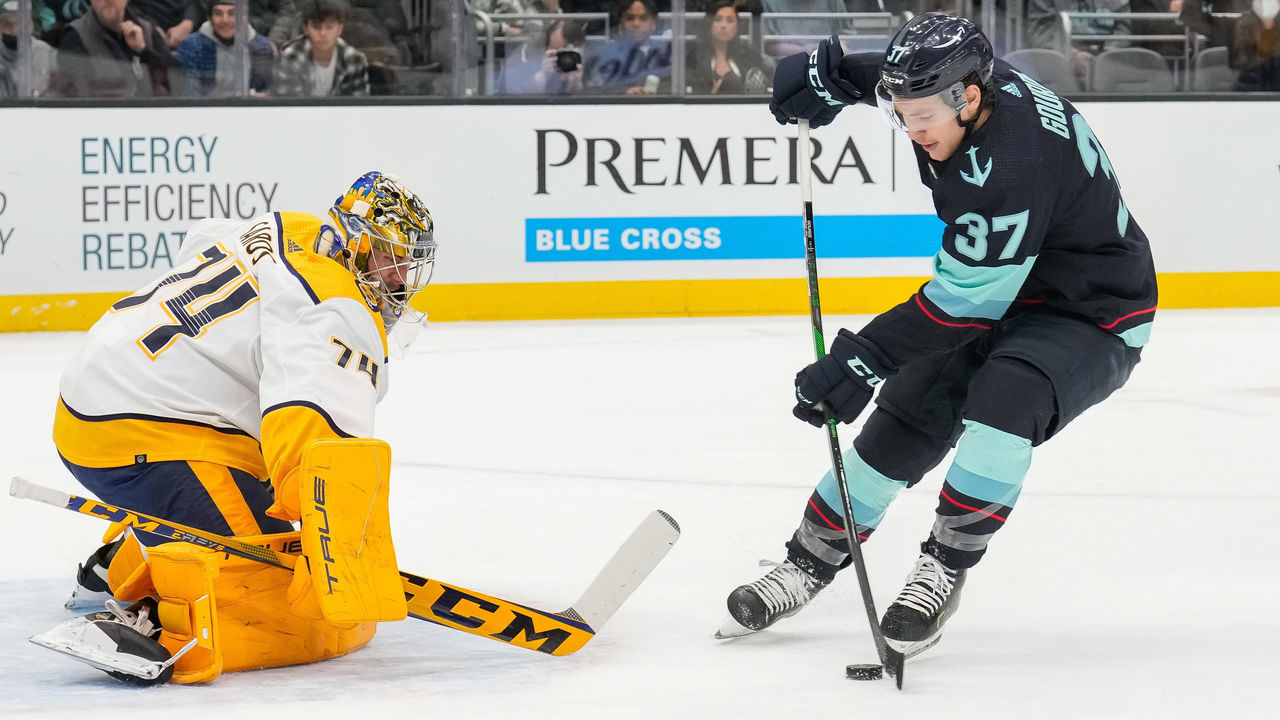
Kraken skaters have ostensibly done a bang-up job limiting the quantity and quality of shots fired toward their netminders during five-on-five action. Evolving Hockey ranks Seattle second in the league in expected goals against per 60 minutes, second in shot attempts against per 60, second in unblocked shot attempts per 60, and second in shots on goal against per 60.
Those underlying numbers suggest the goalies (including third-stringer Joey Daccord, who's appeared in four games) simply aren't holding up their end of the bargain. Gourde, for one, disagrees with that line of thinking, insisting the Kraken's forwards and defensemen haven't provided nearly enough support.
"I don't see it that way," the veteran center told theScore this past Friday. "We weren't playing solid as a team. Most of the time, (the goalie is) the last layer. If you're not playing well in front of them, it's easy to make them look bad. I don't think it's on them. As a whole, we weren't satisfied with our game."
You'll notice Gourde used the past tense in the above quote. That's because, at the time of our conversation, the Kraken had won four of six, with Grubauer posting single-game save percentages above .900 in four of his five appearances. It was the best stretch of the season for the entire group.
"The goalies been excellent lately, and they give us confidence," said Gourde, who's third in team scoring with 23 points in 36 games. "Every single night, we know we have a chance to win, and that's really helpful."
As Eberle noted, the Kraken aren't built to regularly outscore the opposition, and they've largely lived up to that characterization. Jared McCann may lead the team with 18 tallies, but he's outside the NHL's top 25 in goals, while Eberle (12) and Gourde (10) are the only other Seattle players in double digits.
The Kraken are scoring 2.6 goals a game, which makes the calculus pretty easy in a league where the typical contest features six total goals scored. "If you're going to play that way, you don't have much margin for error," McCurdy said. "Because if your goalie lets in a bad goal, that's the whole game."
The underlying problems
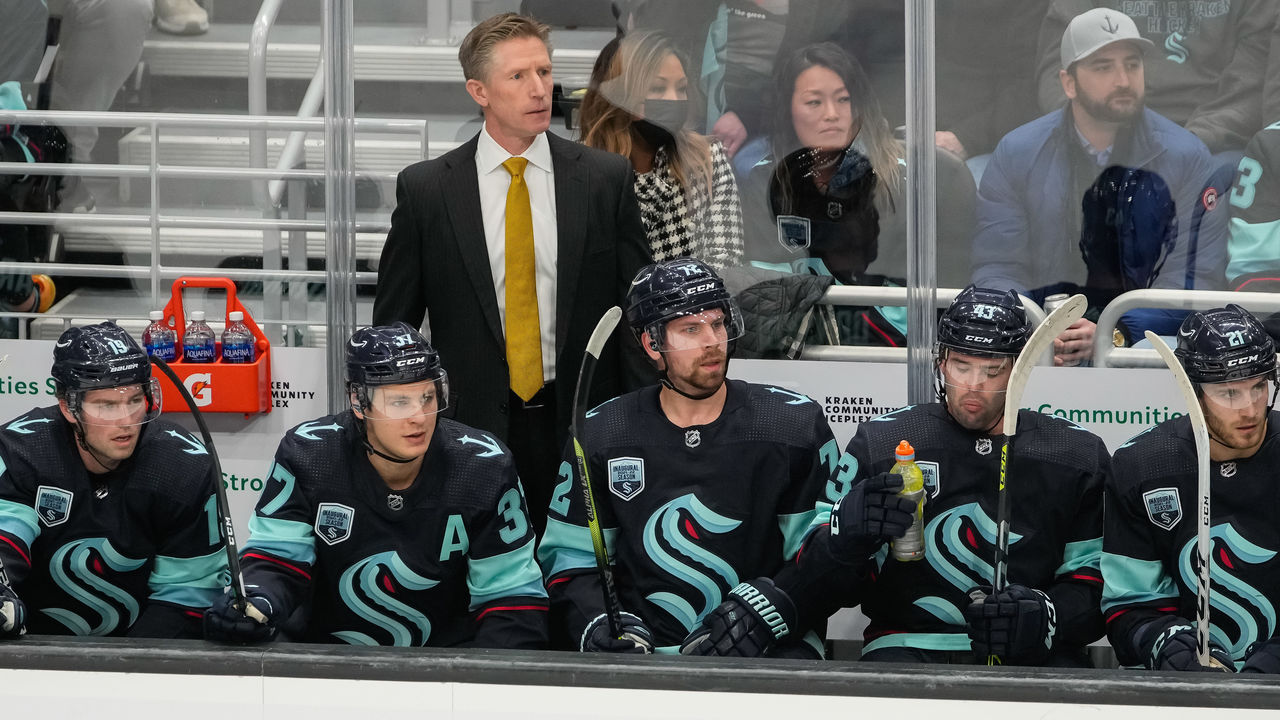
In contrast to Eberle's old Isles teams - who played responsible, straight-line hockey under coach Barry Trotz - Seattle has been too inconsistent from shift to shift, period to period, and game to game under bench boss Dave Hakstol.
Often, the Kraken have either started poorly and then been unable to find that next gear to mount a comeback (as evidenced by the club's 3-18 record when trailing after the first period) or started well and then been unable to keep the lead. "Teams always talk about 'finding a way to win' even when you're not at your best," Brown said. "That's one thing that Seattle hasn't been able to do."
This is a particularly concerning trend from the first half because the Kraken's team identity is supposed to be grounded by an all-for-one, one-for-all mentality. Whether it's forwards backchecking hard, defensemen taking care of the puck, or the special teams following the pre-scout and executing in-game, attention to detail is hugely important within Hakstol's system.
"Knowing how much talent there is in this league, and how difficult it is to win in this league," Gourde said, "you have to think about your own end first."
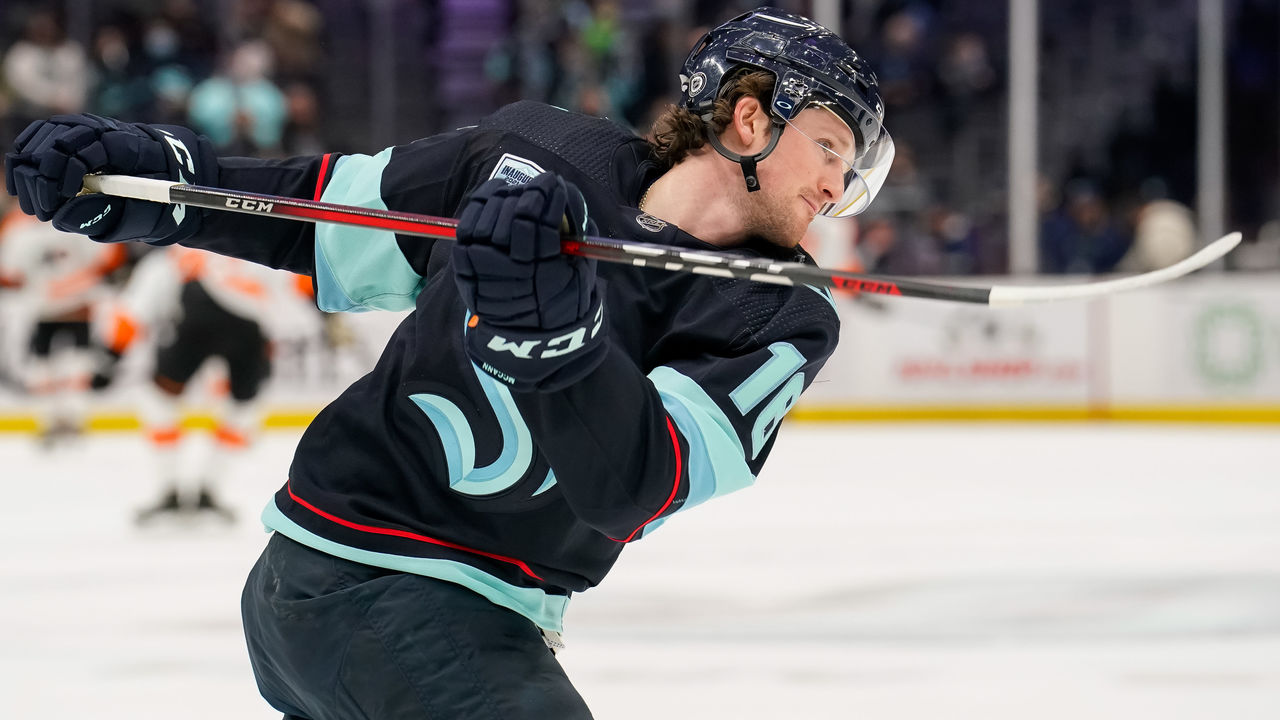
General manager Ron Francis made a few debatable selections during the expansion draft by choosing a largely defensive-minded crop of players. What's interesting in hindsight is that Francis didn't have a bunch of all-around, two-way forwards sitting there waiting to be picked. "Maybe two or three, with Eberle and McCann, and they got them both," McCurdy said.
"After that," McCurdy continued, "you have to choose guys who have an obvious flaw of one kind or another in their game. You can choose guys who are weak offensively and who are strong defensively, or you can choose guys who have some finishing talent and who are weak in their own end."
Gourde and free-agent signee Jaden Schwartz are two other Seattle forwards who have offensive pop. Like Eberle and McCann, they could easily assume a prominent role elsewhere in the NHL. And while the production could be better from these four quality NHLers, they're not necessarily the problem. Instead, a lack of elite talent to lead the attack is what's ailing the Kraken.
"The Kraken basically have a second line and then three third lines. And that's what you get when you're putting your team together from an expansion draft, right?" McCurdy said with a laugh.
The positive spin
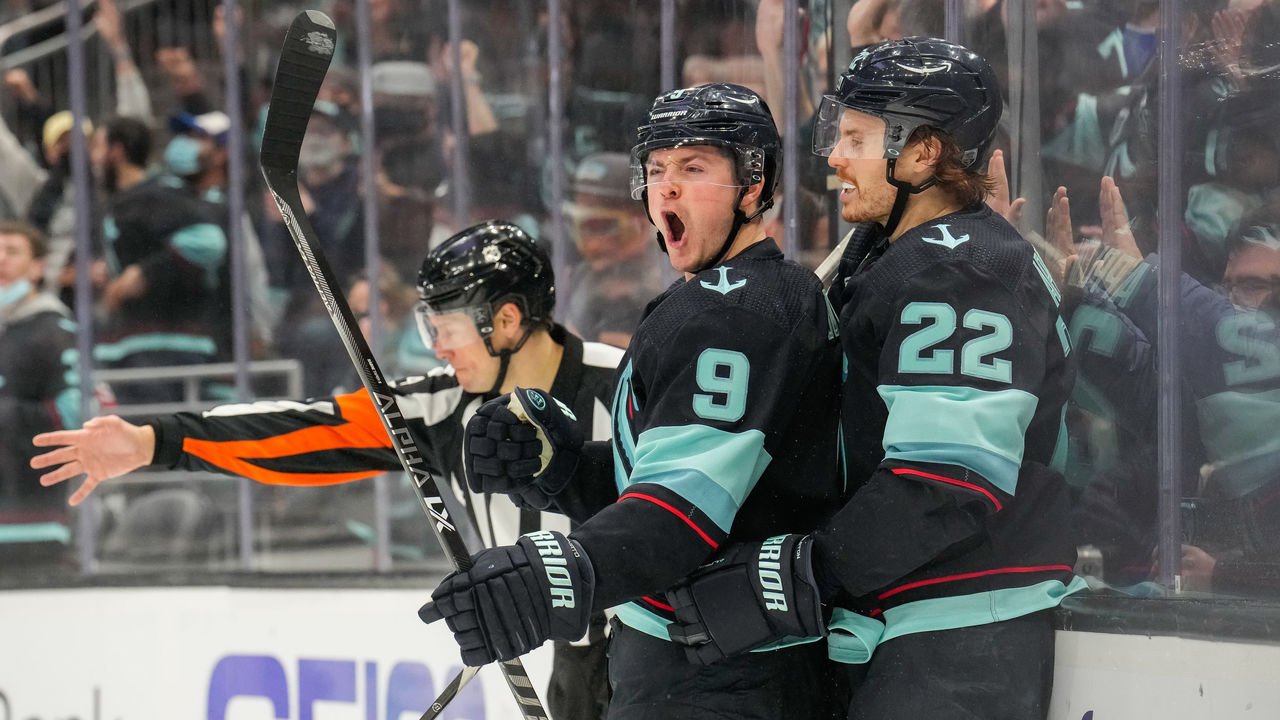
The sky isn't falling in Seattle.
"If we have this same conversation at the end of the season and look at the splits - first half, second half - I think it's going to look a lot different," Brown said.
That bounce-back prediction is in part reliant on the Kraken's 23 players settling in, both individually and as a group. Let's not forget, they're still relatively new to the city, organization, and Hakstol's system. It's reasonable to expect the Kraken to look more cohesive in the back half of the schedule.
Brown, who played six full NHL seasons as a forward for the Lightning, Anaheim Ducks, and Minnesota Wild, also believes Seattle's goaltending is slowly moving in the right direction. And, when asked for a breakout pick in the coming months, he tapped Joonas Donskoi, the versatile ex-Colorado Avalanche winger who has 14 assists but no goals in 43 games.
"Once he gets the first one, it's going to turn around for him," Brown said.
As for the big picture, McCurdy notes outside observers can't forget the fact that the Kraken clearly have a concrete plan in place - an internal idea of how to build a sustainable winner. Francis was conservative in the expansion draft, and aside from signing Grubauer and Schwartz in free agency, put his phone away in the offseason. This patient approach has positioned Seattle nicely from a financial standpoint, which is extremely valuable in the salary cap era.
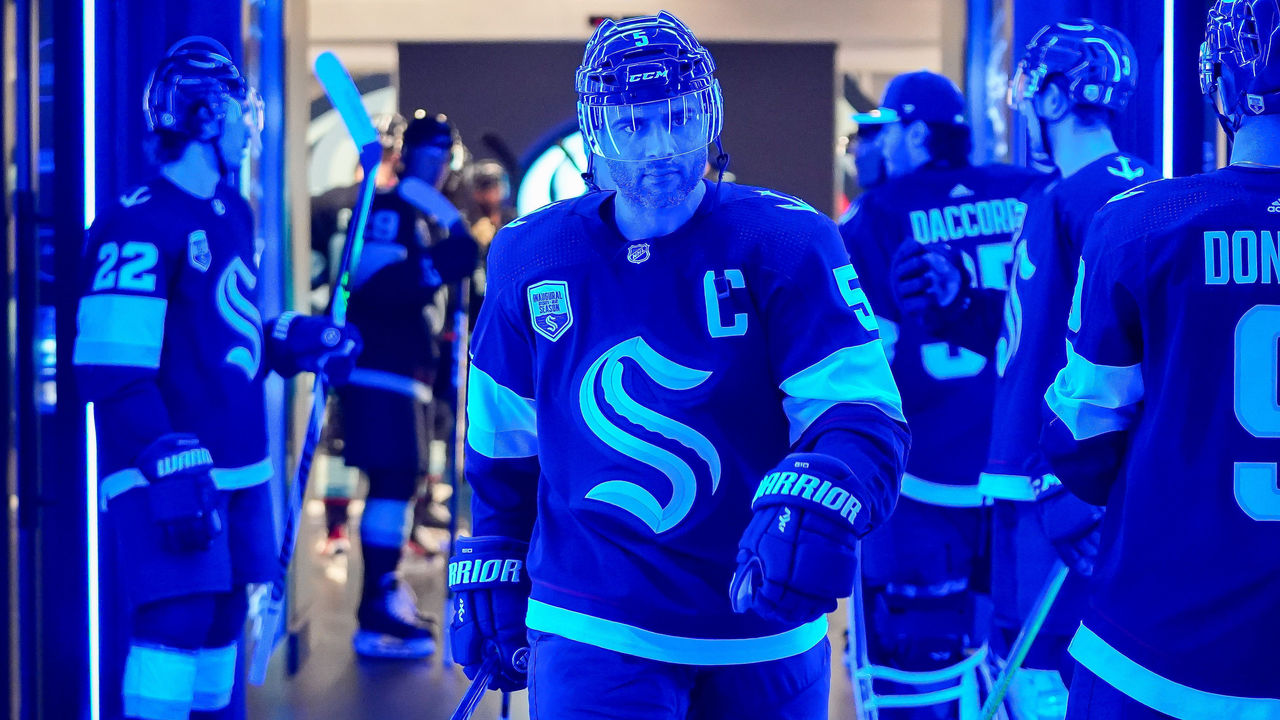
With five pending unrestricted free agents on the roster, it's likely Francis adds to his prospect pool and/or draft pick haul in the leadup to the March 21 trade deadline. Giordano, the No. 1 defenseman and captain, is the most appealing trade chip, and he's made a significant impact on the Kraken in a short time.
"Guys like that, they haven't been around this league for this long for no reason," Gourde said of Giordano, 38 years old and undrafted. "It's not about luck, it's about work ethic, and he brings it every day. Seeing what he does every single day, I think he can inspire a lot of people on our team, and hopefully, some of the guys take that and build a little bit on their own."
Ultimately, the Kraken are attempting to build a winning culture from scratch. Exactly like Vegas five years ago. This time, however, the process is taking longer than a few months - which is normal, given the circumstances.
"I'm not going to go out there and say they're going to win 20 straight and somehow earn a playoff spot," Brown said. "But it's all about being competitive. That should be the main goal, especially for an expansion team."
John Matisz is theScore's senior NHL writer. Follow John on Twitter (@MatiszJohn) or contact him via email ([email protected]).
HEADLINES
- Slovakia in line to win Group B after late goal in loss to Sweden
- 5 key takeaways from Canada's hard-fought victory over Switzerland
- Report: Fiala to have season-ending surgery after Olympic injury
- Canada's Morrissey won't play vs. France, not ruled out of Olympics
- McDavid, MacKinnon shine in Canada's win over Swiss